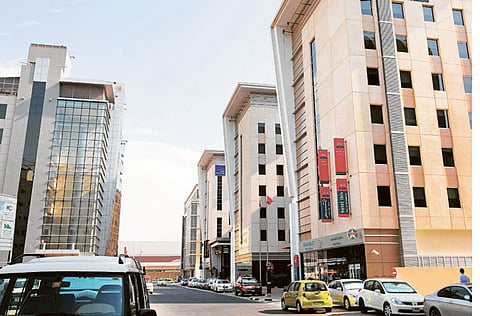Dubai hotels record stable performance in first seven months
Report shows hotel performance in both Dubai and Abu Dhabi impacted by summer and Ramadan

Dubai: Dubai hotels reported stable performances in the first seven months of the year while those in Abu Dhabi continued on their downward spiral compared to the same period last year, according to the latest reports by Ernst & Young and TRI Hospitality Consulting.
Hotels in Dubai recorded a 10.3 per cent increase in revenue per available room (RevPAR) in the January-July period while average room rates (ARR) increased by 8.7 per cent, Ernst & Young revealed in its Middle East Hotel Benchmark Survey for July. It added that hotels in the capital recorded a 12 per cent decrease in RevPAR while ARR fell by 11.3 per cent.
Monthly performances for hotels in both the emirates, meanwhile, were down with RevPAR for the month of July decreasing by 10.3 per cent in Dubai and 21.2 per cent in Abu Dhabi.
“Overall occupancy in Dubai hotels is at 69.4 per cent this July, 11.1 per cent lower than the monthly occupancy in July 2011, due primarily to Ramadan partly falling in the month of July this year,” Yousuf Wahbeh, Mena Head of Transaction Real Estate at Ernst & Young, told Gulf News.
He added that RevPAR dropped 10.3 per cent in July even as average room rate increased 4.1 per cent, “which is indicative of improved rate integrity and stronger confidence in the market from hoteliers’ perspective”.
Occupancy levels
Along similar lines, TRI Hospitality’s HotStats Mena Chain Hotels Market Review highlighted the double impact of summer and Ramadan on hotel performance levels for Dubai and Abu Dhabi during the month of July. The results revealed that occupancy levels in Dubai fell 11 percentage points to 70 per cent in July while ARR increased by 6.4 per cent to $188.51 (Dh692).
HotStats results for Abu Dhabi revealed that occupancy dropped 4.5 percentage points to 57.1 per cent while ARR dropped 8.4 per cent to $104.95 causing a 15.1 per cent drop in RevPAR during the month of July.
“Although performance levels are expected to improve in both cities after Ramadan, Abu Dhabi is likely to face continued pressure from increased competition especially when additional hotels including the Ritz Carlton enter the market at the end of 2012 and early 2013,” said Peter Goddard, Managing Director of TRI Hospitality Consulting in Dubai.
Tourism
E&Y’s Wahbah added that Abu Dhabi currently has 130 hotels and hotel apartments accounting for 22,800 rooms and that the figure is expected to cross 24,000 by the end of 2012. He further explained that major events such as the Abu Dhabi Grand Prix, Abu Dhabi Art, the opening of Yas Waterworld and the 18th World Routes Development Forum will bring in a significant number of tourists which will improve both room rates and occupancies.
Elsewhere in the region a marked change was recorded in Bahrain, where according to E&Y estimates, hotel occupancy increased 39.1 per cent in July over the same period last year. According to Wahbah, the change may be attributed to stability and business confidence improvements.
“Positive developments have also been noted in Amman, where occupancy increased 36.4 per cent year to date in July 2012 with the unrest in neighbouring Syria driving an inflow of people into Jordan,” he pointed out.
Another notable increase was seen in Jeddah which registered an 18.6 per cent increase in occupancy reflecting the growth of tourism during Ramadan and Umrah travel.
Rohma Sadaqat is a trainee at Gulf News
Sign up for the Daily Briefing
Get the latest news and updates straight to your inbox


